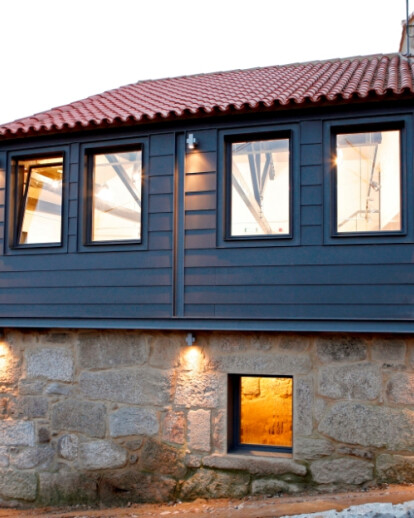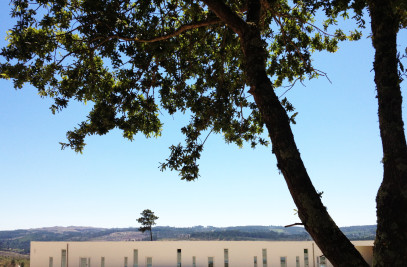Ethnographic Center of Várzea de Calde
The proposal for the conversion of the space in Ethnographic Museum is based on the requirement of preservation and revitalization of a century-old village, fighting against urban decharacterization, depopulation and the consequent disappearance of their cultural identity.
Taking into account the factors of local identity, specifically ethnographic characteristics, a trend of ruralisation the economic life of the village is visible, which was made over the centuries and preserved in a modus vivendi that has remained almost unchanged until the present day, fruit of a certain distance from urban centres.
These aspects are bound by customs and collective memory, and it is intended now to "meet" these elements into a space where they can be seen. The intention of the project is the restoration of these spaces, preserving, whenever possible, the memories they bring.
The proposed concept involves a revaluation and cultural heritage, focusing on the ethnographic museum (developed in the main house) a set of agricultural tools, as well as traditional crafts. The idea is based on the recreation of life environments and the work on the village, organizing the space in the context, always with a specific theme.
It is intended to recover the medieval mill, partly in ruins, which maintains its granite walls in a considerable state of preservation. In the space that was once the cellar, completely in ruins, it is proposed to make a new and more contemporary construction, consistent with the pre-existing.
For the adjacent green space, this will support the different buildings, functioning as the unifying bond of the proposal.

































